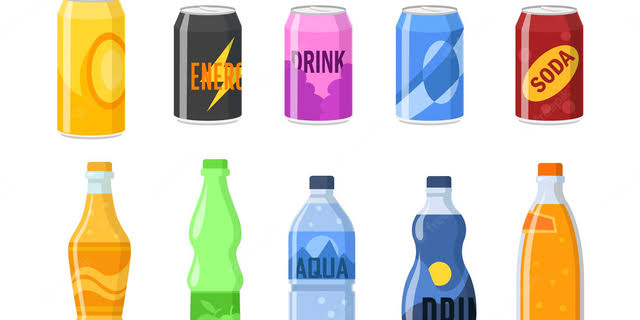One question often asked is, what are the alternatives to drinking soda and carbonated drinks?
Many people believe malt drinks are healthier than carbonated drinks, but how true is this?
Firstly, a 33cl can of soda contains 140 calories and 39 grams of pure sugar. The same quantity of malt contains 188 calories and 34 grams of sugar.
Malt drinks have nutrients like Vitamins A, B, C and calcium. It has over 11 vitamins and seven minerals while soda has none.
The concern about how much calories and sugar a drink contains is important if you’re trying to lose weight or you are diabetic.
However, malt does have some nutritional benefits, made from fermented barley, the process by which it is made helps to conserve nutrients.
Malt does not raise your blood pressure which is one of the best ways it’s different from soda. It scores dramatically low on the glycemic index. However, malt is higher than soda in sodium, cholesterol and saturated fat content.
A study in Malaysia published in BMC Public Health about the effect of malted drinks on children found that,
“Children who consumed malted drinks generally had greater micronutrient intakes than non-consumers. Furthermore, malted drink consumers were more likely to meet the RNI for total energy intake, protein, vitamin A, vitamin C, thiamin, riboflavin, niacin, calcium and iron.”
“Consuming malted drinks is associated with higher micronutrient intakes and higher levels of physical activity, but not with body weight status.” The report said.
By all indications, malt is healthier than soda, but it isn’t exactly a healthy drink.
However, malt does have some nutritional benefits, made from fermented barley, the process by which it is made helps to conserve nutrients.
Malt does not raise your blood pressure which is one of the best ways it’s different from soda. It scores dramatically low on the glycemic index. However, malt is higher than soda in sodium, cholesterol and saturated fat content.
A study in Malaysia published in BMC Public Health about the effect of malted drinks on children found that,
“Children who consumed malted drinks generally had greater micronutrient intakes than non-consumers. Furthermore, malted drink consumers were more likely to meet the RNI for total energy intake, protein, vitamin A, vitamin C, thiamin, riboflavin, niacin, calcium and iron.”
“Consuming malted drinks is associated with higher micronutrient intakes and higher levels of physical activity, but not with body weight status.” The report said.
By all indications, malt is healthier than soda, but it isn’t exactly a healthy drink.



